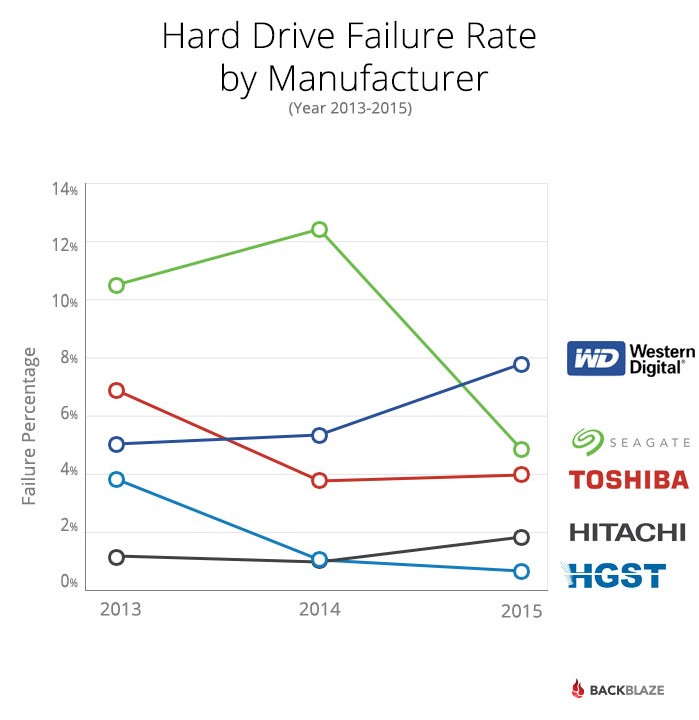Chayan4400 :
7200 RPM means the platters spin faster, which usually means faster access times. However, the difference is often negligible if using the HDD as secondary storage (OS on SSD). Try to avoid Seagate altogether, as their overall failure rates are much higher than WD or Hitachi. The WD Red 3TB should do well.
Those 3TB results are from servers, but they are still relevant. If you were comparing them against a server grade WD Re then it would be obviously biased.
But no, we're talking about the Seagate Barracuda 7200.14 ST3000DM001, which is a desktop HDD, being compared against the likes of the WD Red, which is a NAS oriented HDD.
PCPartPicker part list /
Price breakdown by merchant
Storage: Seagate Barracuda 3TB 3.5" 7200RPM Internal Hard Drive ($82.88 @ OutletPC)
Storage: Toshiba 3TB 3.5" 7200RPM Internal Hard Drive ($89.89 @ OutletPC)
Total: $172.77
Prices include shipping, taxes, and discounts when available
Generated by PCPartPicker 2016-01-08 10:43 EST-0500
The Seagate has a failure rate of 43.1%. The WD Red 6.9% in the same conditions. That alone is enough to justify the extra $30 for the Red.
Where did you pull that enormous failure rate percentage from? (Seagate, 43.1%)
When looking at this graph from backblaze:
Clearly Seagate did have a slightly higher failure rate in 2014, they don't specify why but I'd assume it's because of those dreaded 3TB drives. The rate then drastically dropped, while WDs rate is climbing.
I'm not saying you're wrong, but if you do have a source for it then we're clearly looking at different ones...
From my own experience the past 15 years, Seagate boasts a whopping 0% failure rate, while WD is in the lead with 100%. Every single WD drive I've got has failed, the most recent a 4TB Red with only 3 weeks of service. I'm still using one of the older Seagate drives @250GB, it's probably 10 years old.
Personal experience is worth nothing in the big picture of course, but I can't let you bash on Seagate without any source for it.



